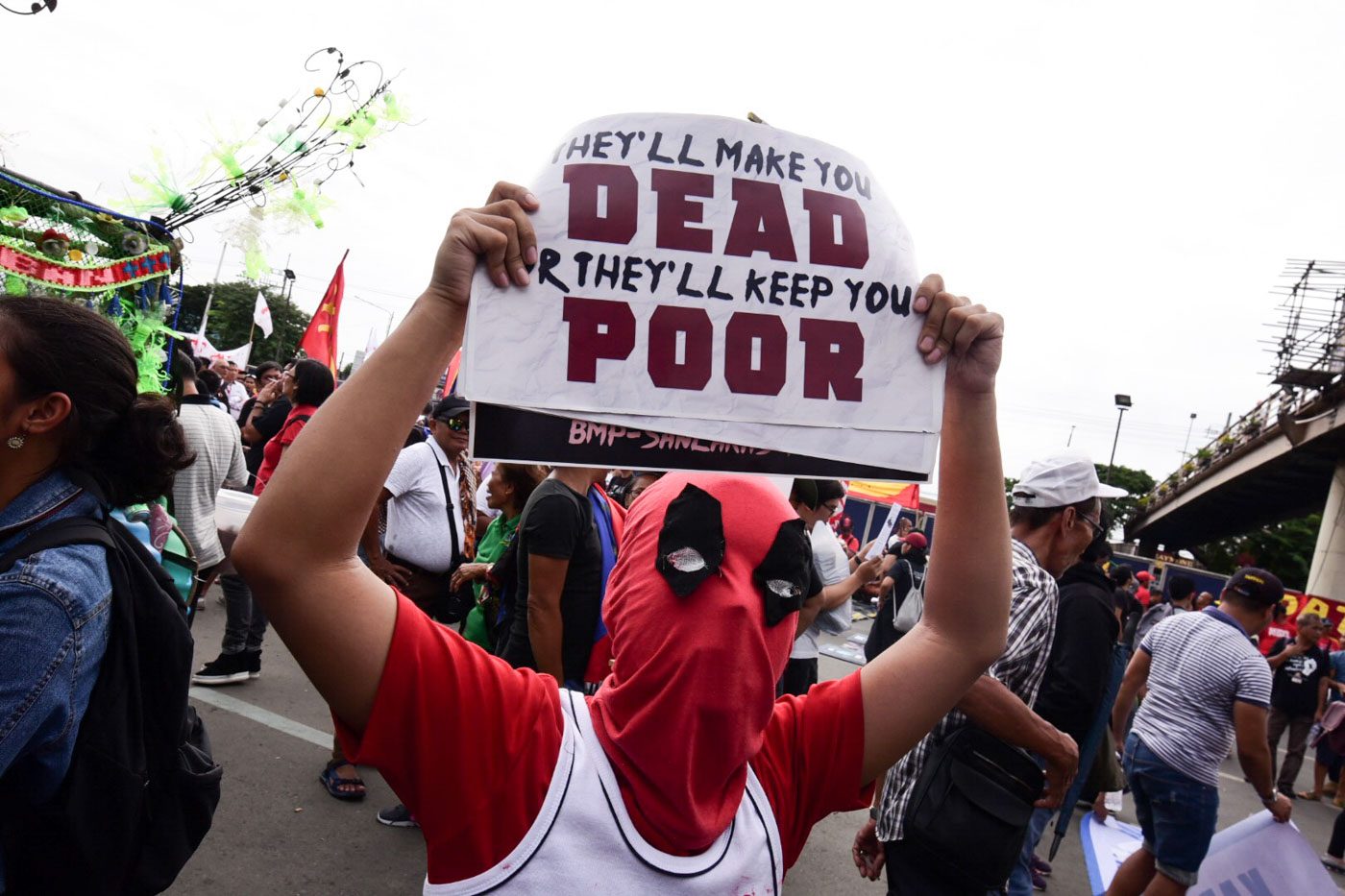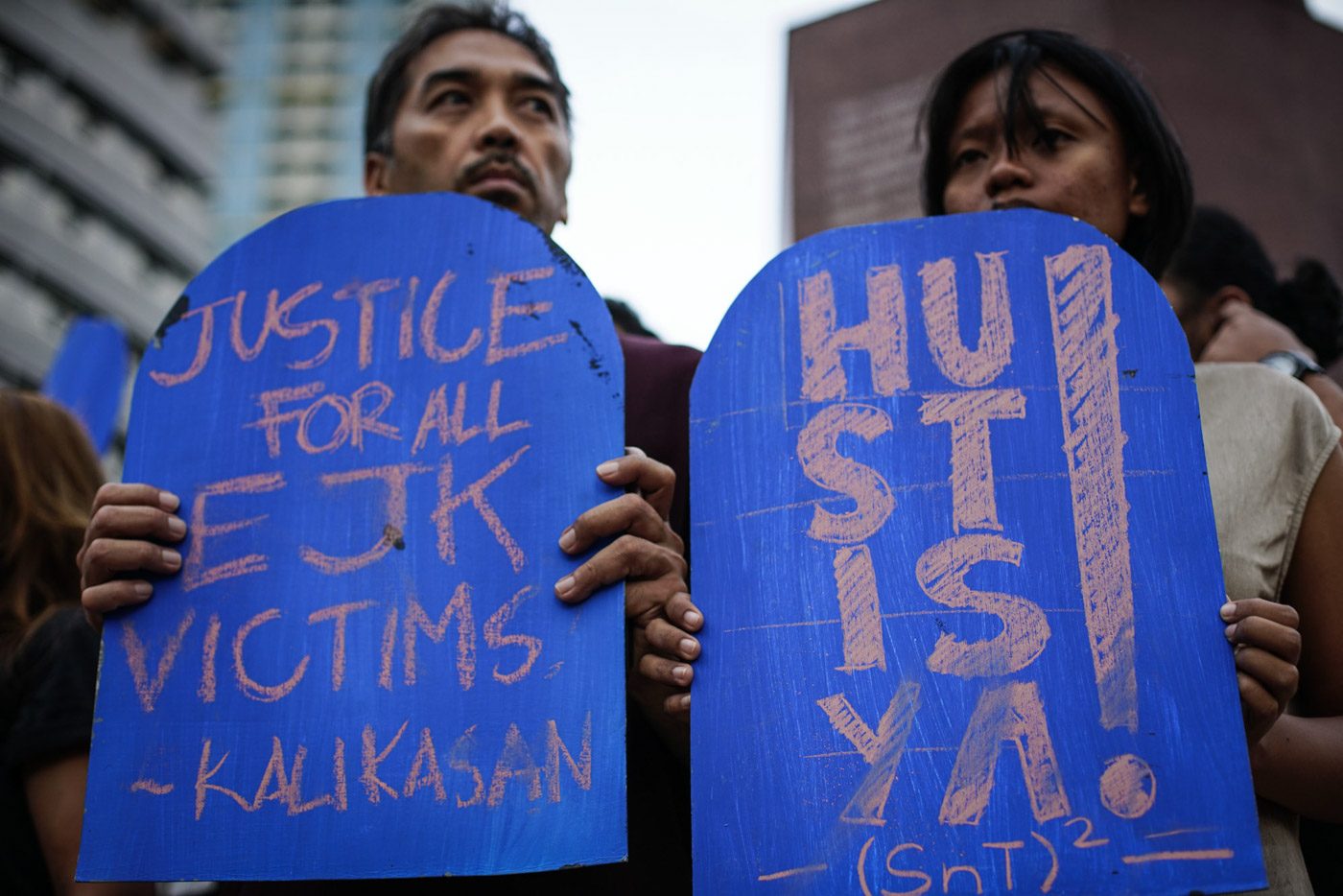SUMMARY
This is AI generated summarization, which may have errors. For context, always refer to the full article.

AT A GLANCE
- A recent United Nations report names the Philippines as one of the countries whose governments subject human rights defenders and activists to “an alarming and shameful level of harsh reprisals and intimidation”
- 60 human rights defenders in the Philippines were killed in 2017, said the latest report of human rights group Front Line Defenders
- While threatened, human rights defenders persist in their work by shifting mindsets and learning new security protocols and tools
MANILA, Philippines – Butch Rosales was a human rights defender for most of his life, spending many years as a labor rights activist in Cebu and standing up to industry giants in the busy metropolis.
Dedicated and passionate, Rosales did not let fear and intimidation get between him and his commitment to fair labor practices. In the last couple of years, he extended his human rights work to families of victims of extrajudicial killings under the Duterte administration through the RISE UP movement.
But on August 8, after Rosales boarded a public jeepney to Mandaue City, a gunman in the same vehicle pumped 3 bullets into the activist’s head – killing him on the spot.
The human rights movement lost another of its own.
Human rights group Front Line Defenders, which is based in Ireland, said that in 2017 alone, 60 defenders died at the hands of unidentified gunmen in the Philippines.
This reality is not new or unique to the Duterte administration. Since 2001, there have been at least 613 documented killings of human rights defenders: 474 during the administration of Gloria Macapagal Arroyo (2001-2010) and 139 under then-president Benigno Aquino III (2010-2016).
The Philippines has continuously been among the 6 countries that account for 80% of the deaths of defenders worldwide – along with Brazil, Colombia, Guatemala, Honduras, and Mexico.
In 2017, also according to Front Line Defenders, the country recorded the most number of deaths outside of the Americas. In Asia, the “remotely comparable level of killings” is India.
Task Force Detainees of the Philippines (TFDP), meanwhile, documented 26 cases of killings from January to June 2018.
There are several reasons for the unending hostility, according to Jim Loughran, head of Front Line Defenders’ HRD [Human Rights Defenders] Memorial Project.
“This is a pattern continuing into the present rooted in endemic impunity, a dysfunctional legal system, and official hostility to the work of human rights defenders,” he told Rappler.
Duterte’s brand of impunity
What distinguishes the Duterte administration from previous administrations on the matter of human rights, according to those we have interviewed, are the following:
- The explicit nature of his attacks on the rule of law
- The climate of fear that pervades because of his rhetoric that often translates to government actions
- The demonization of the concept of human rights
This threatens to weaken the Philippine human rights movement, as activists are forced to deal with legal and security problems instead of focusing their time and work on helping victims.
Loughran said human rights groups work under an environment made more difficult by a President with “explicit and undisguised…direct attack on the rule of law, independent media, and state institutions designed to protect human rights.”
The President’s deadly rhetoric and actions against dissent are proving to be a deadly combination.
For Ellecer Carlos, who’s spent 25 years in the field, the last two years have been his “most difficult.” And he expects the “worst to come.”
Mindset shift
Human rights groups now go through a so-called “mindset shift” by learning digital security tools and protocols in response to government threats. (READ: Prone to abuse? State surveillance as tool to silence dissent)
Duterte has never hidden his preferred mode of addressing crime, which is to short-cut processes and kill criminals.
The government’s relentless campaign against suspected drug users and street dealers has claimed the lives of more than 4,500 people in police operations, with non-government groups estimating the number to reach more than 20,000 including victims of vigilante killings. (READ: The Impunity Series)
This scares ordinary people and activists alike, according to Tina Palabay, secretary-general of human rights group Karapatan. “We think there is a real risk and danger against defenders especially under this administration, precisely because of the climate endangered by the war on drugs,” she said.
Attacks have also manifested in other forms outside the war on drugs – including the jailing of opposition members, public threats against human rights groups, and even the continuous monitoring of people that government regards as “destabilizers.”
“When they can’t kill people, they put them behind bars in an attempt to silence them,” Palabay said. “They’re not only facing charges in court but they’re also being maligned as criminals, terrorists, and enemies of the state because of the work that they do.”
Demonizing human rights
President Duterte has also completely demonized human rights, according to many groups, painting it as an obstacle to the change he wants to achieve for the country.
For example, Presidential Spokesperson Harry Roque in March 2018 raised the idea that criticism of Duterte’s campaign against illegal drugs persists partly because groups are getting funds from drug lords. Human rights groups, he added, had become “unwitting tools of drugs to hinder strides” by the administration.
All this has put the Philippines on the list of countries named in a recent United Nations report whose governments subject human rights defenders and activists to “an alarming and shameful level of harsh reprisals and intimidation.”
Task Force Detainees of the Philippines, in a position paper, said that the rising numbers show that there is still a huge obstacle between human rights defenders and their right to “carry out their peaceful and legitimate activities in a safe and enabling environment without fear of being subjected to acts of intimidation or violence of any sort.”
“The situation underscores failure of the authorities to conduct prompt and impartial investigations into alleged violations, prosecution of the perpetrators, provision of redress and enforcement of court decisions lead to further attacks and human rights violations against human rights defender,” TFDP said.
TFDP also said that “there is also a proliferation of national laws which restrict and criminalize human rights defenders’ work.”
These systematic actions help weaken the movement, according to Loughran.
“The use of smear campaigns and trumped up charges embroils defenders in complicated legal proceedings so that their energy goes into their legal defense, especially if there are multiple charges, rather than into their human rights work,” he said.
“Killings by eliminating the leaders weaken the human rights movement and terrorize whole communities,” Loughran added.

Seeing themselves as an open target of the administration, human rights defenders have compromised their vital work for victims. There are others, however, who persist, with safety as the last thing on their minds.
“We certainly feel fear and we grieve because we lost many of our fellow activists throughout the years,” Palabay said. “Some of them were friends and many of them people we worked with in the course of our fights for our rights.” (READ: Climate of fear: Justice remain elusive 2 years into Duterte’s drug war)
But there is always a silver lining for the defenders.
“One bright side of it, whenever you are working with communities, they will be the first ones to defend and protect you against whatever happens,” Palabay said. “That is what human rights defenders can count on.” – Rappler.com
To be concluded: Protecting human rights groups vs threats
Add a comment
How does this make you feel?
There are no comments yet. Add your comment to start the conversation.